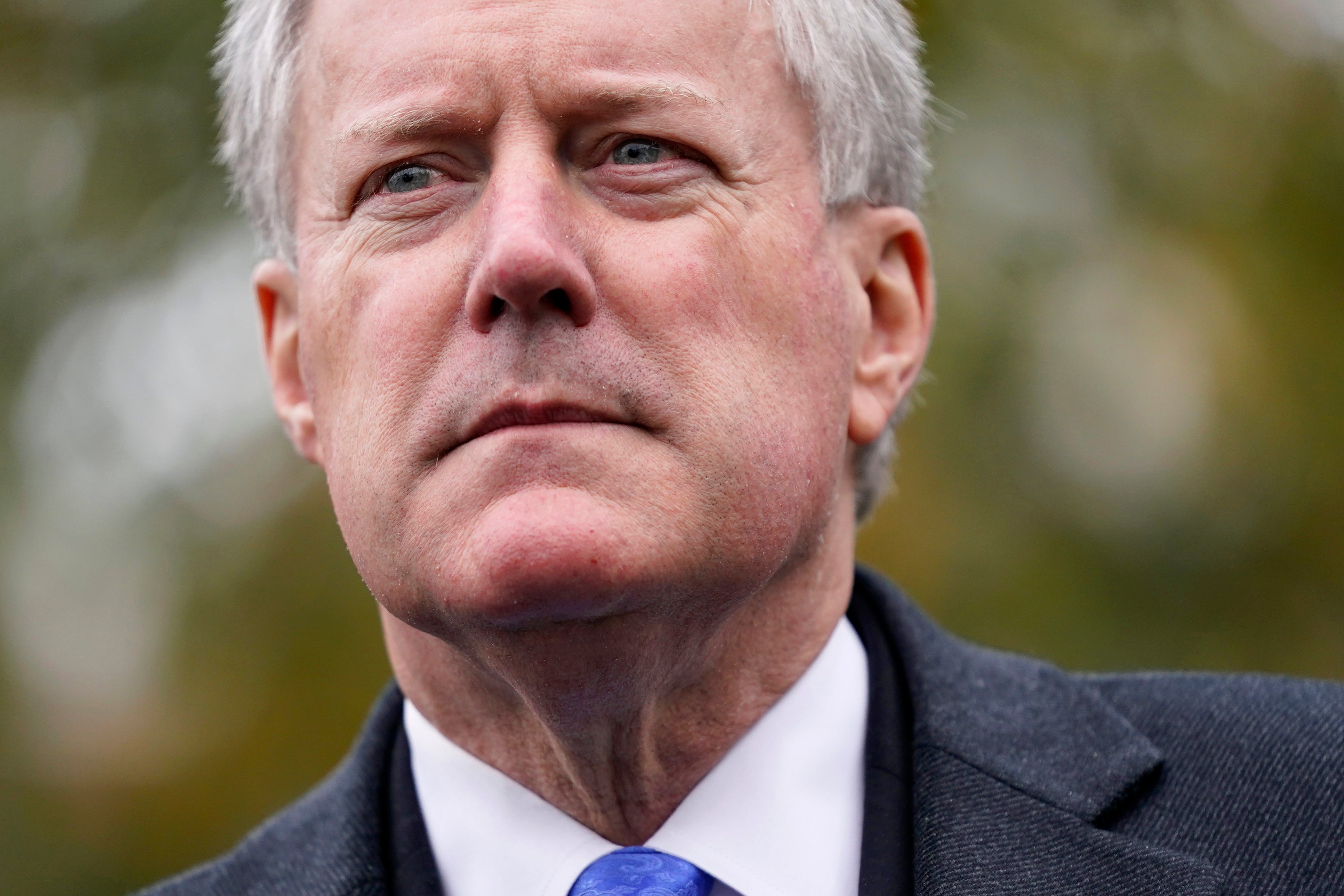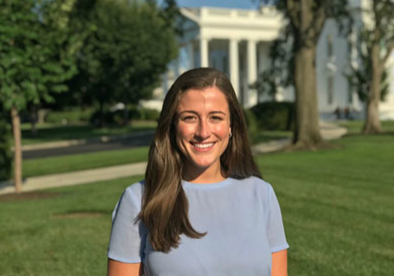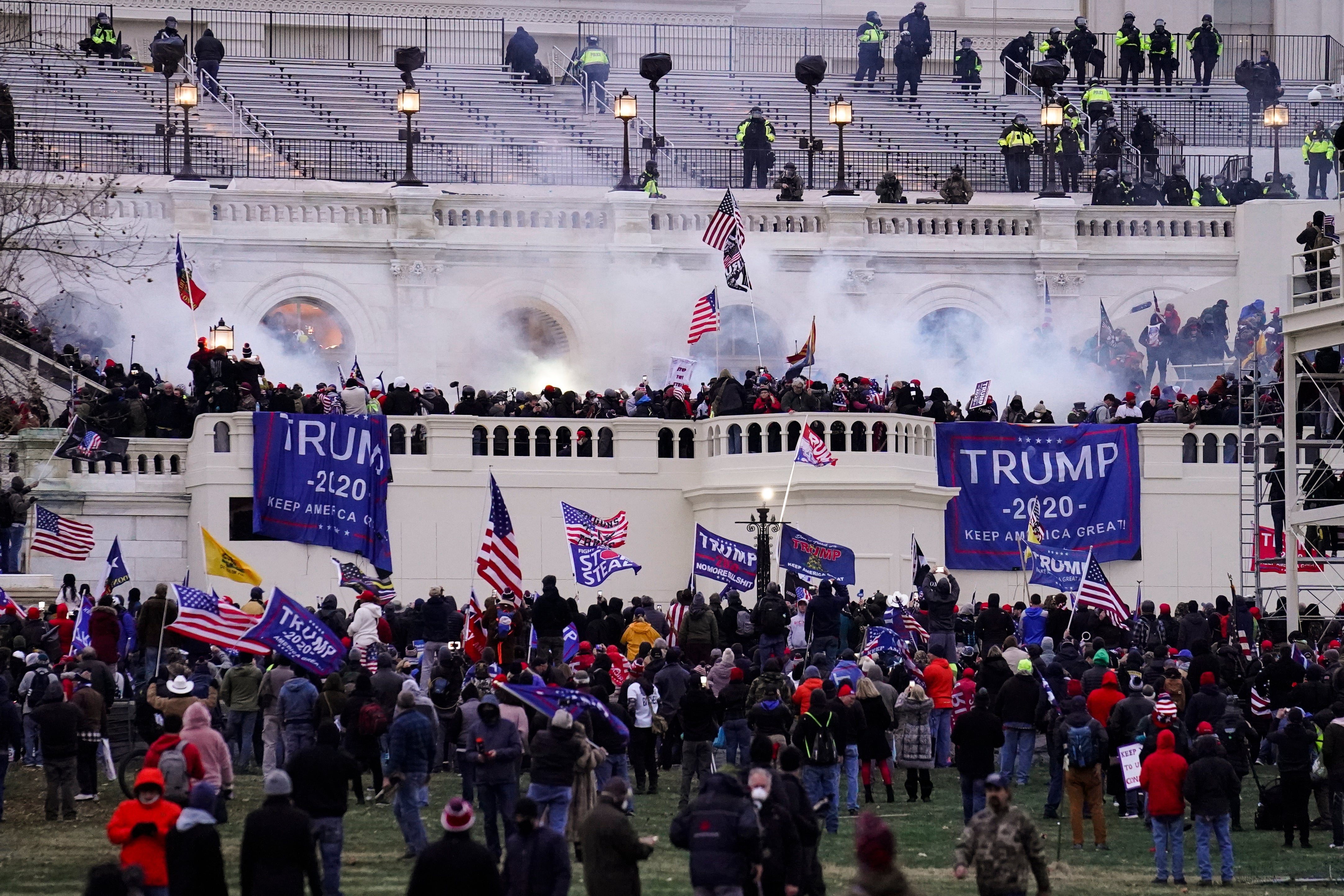
Donald Trump’s chief of staff Mark Meadows was briefed on intelligence reports warning about the potential for violence prior to the US Capitol riots, a former White House official told the 6 January House committee.
Cassidy Hutchinson, a special assistant in the Trump White House, told the committee that Mr Meadows was warned by Anthony Ornato, a senior Secret Service official, about concerns the protests could turn violent.
“I just remember Mr Ornato coming in and saying that we had intel reports saying that there could potentially be violence on the 6th,” Ms Hutchinson told the committee in newly released transcripts.
“And Mr Meadows said: ‘All right. Let’s talk about it’.”
The filing from the House Committee late Friday came as they try to force Mr Meadows to cooperate with the its investigation.
Mr Meadows has handed over thousands of text messages, but he has refused to sit for an interview, and has tried to assert executive privilege due to his White House position.
The exact nature of what Mr Meadows was told is not clear from Hutchinson’s testimony. Though law enforcement had been bracing for potential violence on 6 January, officials had not properly accounted for the prospect that a violent mob would attack the Capitol.

Ms Hutchinson also revealed how the White House counsel’s office cautioned against plans to enlist fake electors in states, including in meetings involving Mr Meadows and Trump lawyer Rudy Giuliani.
The filing included new text messages that Mr Meadows had turned over, including several from House Republicans who were pushing the former North Carolina congressman to act.
Mr Meadows’ close friend, Rep. Jim Jordan of Ohio, suggested in a late text on 5 January 2021 that Vice President Mike Pence “should call out all electoral votes that he believes are unconstitutional as no electoral votes at all.”
Mr Meadows texted back in the early hours of 6 January: “I have pushed for this. Not sure it is going to happen.”

Mr Pence ultimately resisted the overwhelming pressure from Trump and his allies and did not attempt to object to Biden’s certification.
Rep. Scott Perry, of Pennsylvania, was texting Mr Meadows as early as 26 December 2020: “Mark, just checking in as time continues to count down. 11 days to 1/6 and 25 days to inauguration. We gotta get going!”
In the texts released by the committee, Mr Perry encouraged Mr Meadows to talk to Jeffrey Clark, an assistant attorney general who was sympathetic to Mr Trump’s bogus claims of election fraud.
A week later, on 3 January, Mr Clark attended a meeting at the White House with Mr Trump, where the prospect of elevating him to the role of acting attorney general was discussed — but adamantly resisted by Justice Department officials, who threatened to resign, and White House lawyers. Mr Trump ultimately backed down.
Ms Hutchinson said Mr Meadows talked “frequently” to Mr Clark.
In another interview released by the committee Friday, former Justice Department official Steven Engel, then the head of the Office of Legal Counsel, said Mr Clark had suggested that the department provide a legal opinion to Mr Pence regarding the vice president’s authority to object to the certification of the presidential election.
Mr Engel said he told Mr Clark that was “absurd” and reminded him that Mr Pence’s role was a ceremonial one as president of the Senate.
The testimony released Friday also reinforced how certain Republicans in Congress were deeply involved in White House discussions about overturning the election in the months leading to the deadly insurrection.

Ms Hutchinson, for instance, described several calls involving Mr Meadows and members of the far-right House Freedom Caucus in late November and early December in which participants discussed what Pence’s role could be on Jan. 6, besides the ceremonial role he was required to play.
On those calls, according to Ms Hutchinson, were representatives from Trump’s legal team, including Mr Giuliani, Jenna Ellis and Sidney Powell, as well as Mr Jordan and Mr Perry.
After the House committee filed a criminal contempt complaint against Mr Meadows, it sent a contempt of Congress charge against him to the full House, where it passed on a near-party-line vote.
While an earlier contempt referral against former Trump adviser Steve Bannon resulted in an indictment, the Justice Department has been slower to decide whether to prosecute Mr Meadows.
Any criminal case against Mr Meadows would be more complex than that presented against Mr Bannon, in part because Meadows was a White House chief of staff and because he had begun to cooperate with the committee, even providing documents to the nine-member panel.
Meadows’ attorney, George Terwilliger, has previously said that due to his client’s willingness to turn over records, he should not be compelled to appear for an interview.
The Associated Press contributed to this report







